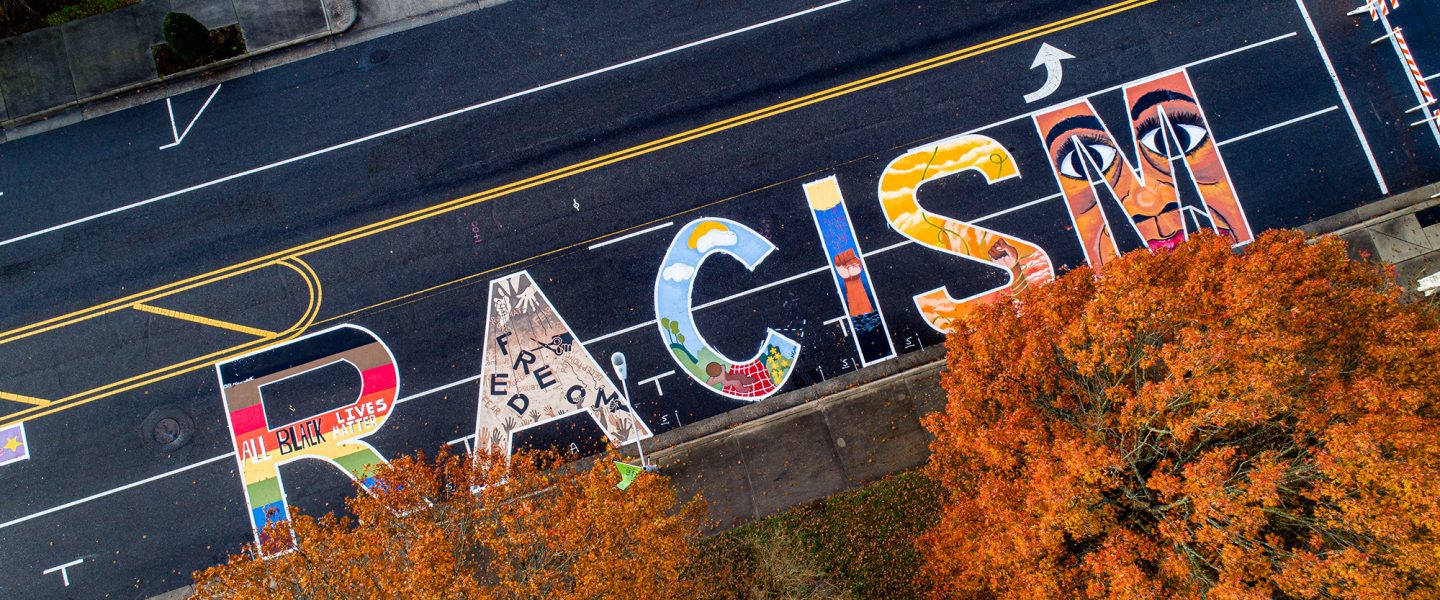Attacks on Education and Democracy United by Racist Ideology
Attacks on Black Americans and Black history are a threat to American democracy, a new report finds.
|
Listen To This Story
|
What Republicans and conservative parents see as a fight against “wokeness” in education is instead part of the same racist attack that is at the heart of the threat to American democracy, one the country’s oldest civil rights groups argues in a new report on the threats Black Americans face.
The document, which was released this week by the National Urban League (NUL), an advocacy group dedicated to empowering Black Americans, links attacks on education to an increase in right-wing domestic terror attacks and the storming of the US Capitol building. The group argues that these attacks are part of America’s long history of racism.
“Our country, communities, and schools are again under attack by the descendants of hate groups of decades past, spewing the same hateful messages dressed up with fresh political rhetoric,” writes Maya Henson Carey, a research analyst for the Southern Poverty Law Center (SPLC).
Students who receive an inclusive education, i.e., one that deals with the history of racism in the United States, are better prepared and more socially responsible, Carey writes. An incomplete or inaccurate education inhibits students’ civic participation.
However, Republican lawmakers and their supporters often stand in the way of students receiving such an education. For example, the movement against so-called critical race theory uses the language of parental rights to advocate for limiting access to books and curricula that feature Black history and LGBTQ themes.
“The unifying interest is protecting only the rights of children and parents of the majority, namely those who are white, cisgender, and straight,” writes Carey. “Books about race, racism, civil rights, activism, and stories with religious minorities were among the favorites targeted for banning.”
NUL leads Project Ready, an educational initiative which aims to fill the gap left by education policy. It teaches historical and cultural literacy as well as science, technology, engineering, arts, agriculture, and math (STEAM).
 “An education that turns a blind eye to the realities of the world, or schooling that intentionally misinforms students and communities about the history and current events, is as inherently dangerous as no education at all,” the report reads.
“An education that turns a blind eye to the realities of the world, or schooling that intentionally misinforms students and communities about the history and current events, is as inherently dangerous as no education at all,” the report reads.
The University of California, Los Angeles identified 670 bills, resolutions, executive orders, opinion letters, statements, and other measures aimed at limiting access to texts and preventing the teaching of Black history. These measures have been introduced at all levels of government, including federal, and 362 of them have been adopted.
Attacks on teaching so-called critical race theory in schools are key to an effort to bring the country back to Jim Crow, according to the report.
“White nationalists seek to return to an America that predates the implementation of the Civil Rights Act of 1964 and the Immigration and Nationality Act of 1965,” says Susan Corke, director of the Intelligence Project at the SPLC. “The hard right in America sees the nation’s increasing diversity as a threat that must be countered in politics, in law, in court, in the media — and with violence.”
The NUL report points to a 44 percent rise in hate crimes. One of them, the May 14, 2022, domestic terror attack on a supermarket in a Black neighborhood in Buffalo, NY, takes center stage for many of the report’s authors because it highlights the role played by far-right ideology.
White supremacists like the Buffalo shooter believe in the so-called Great Replacement Theory, which alleges a Jewish-led conspiracy to replace white Americans with people of color. Dangerous rhetoric like this drives the rise in hate crime, the report says.
“This racist ‘great replacement’ conspiracy furnishes the central framework for the white supremacist movement,” says Michael Lieberman, senior policy counsel at the SPLC. “The murders in Buffalo last year provide a brutal example of how antisemitism is an animating feature of white nationalist ideology, inextricably intertwined with anti-Black racism.”

The threat posed to American democracy is likewise inextricably linked to white supremacy, writes Sen. Cory Booker (D-NJ). A Confederate flag flown during the attack on the Capitol on January 6, 2021, reminded him that the same ideology that motivated the Ku Klux Klan also motivates those who stormed the building that day as well as the perpetrators of the Emanuel African Methodist Episcopal Church and Tree of Life Synagogue shootings.
“The sobering fact is that America has not yet fully confronted the threads of domestic extremism that have existed since its very beginnings,” Booker writes.
In response to the renewed assault on democracy, the report highlights the need for collaboration.
“Those who hate aim to divide and isolate us,” says Jonathan Greenblatt, CEO and national director for the Anti-Defamation League (ADL). “They seek to demonize and marginalize those they target. The antidote to hate and extremism must therefore be unity and collaboration. We are stronger and safer when we work in partnership.”
The majority of hate crimes — more than 60 percent — were motivated by race and ethnicity, writes Assistant Attorney General for Civil Rights Kristen Clarke. More than half of those crimes targeted Black Americans. Federal Bureau of Investigation statistics also show a more than 70 percent rise in hate crimes targeting Asian Americans and a rise in gender identity-related hate crimes of more than 30 percent.
“We are raising the alarm around the explosive growth of far-right and domestic extremism and the threat it poses to our communities, our families, and our nation,” the report states. “The time to act is now.”

